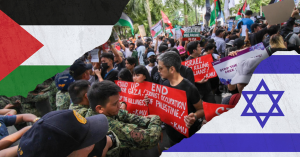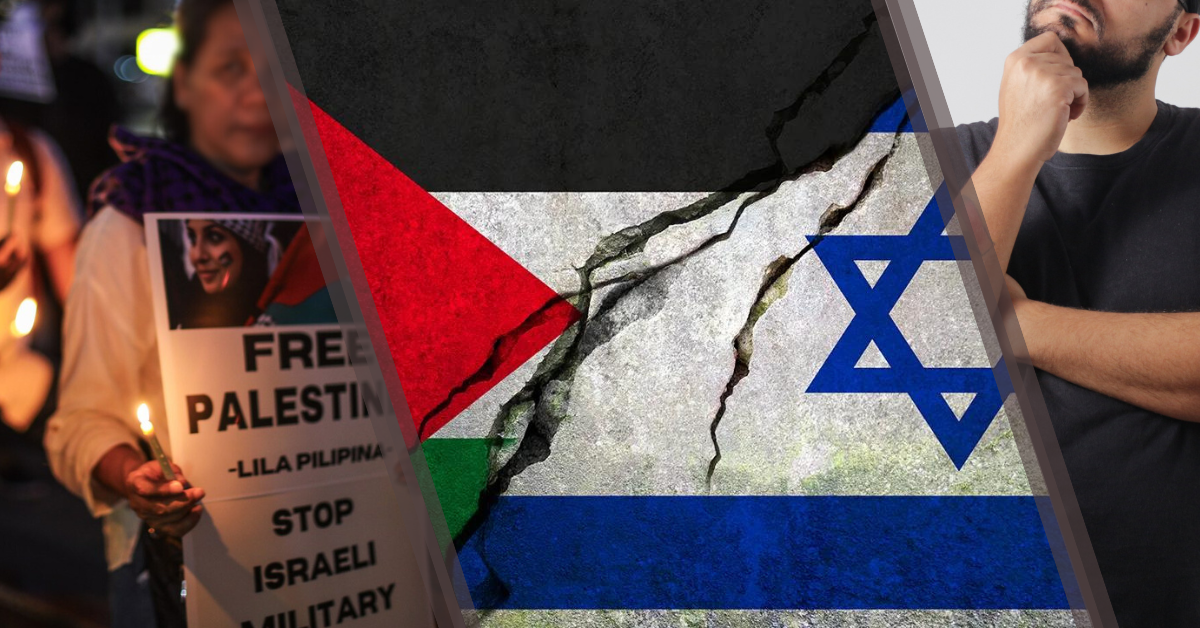October 15, 2023
by Jeremiah Agonia
In today’s setting, where geopolitical tensions and regional conflicts exist, the Israel-Palestine issue remains a complex and longstanding dispute that has been affecting numerous countries. Despite the Middle East being the primary center of the conflict, its consequences resonated far beyond the borders of the region, reaching even other countries, including the Philippines.
Going back to the roots of the conflict, it can be traced back to the late 19th century when the United Nations adopted Resolution 181, also known as the Partition Plan, intending to divide the British Mandate of Palestine into separate Arab and Jewish States. The establishment of the State of Israel on May 14, 1948, led to the first Arab-Israeli war, lasting until 1949, in which Israel emerged triumphed. The aftermath saw the division of the territory into three parts: the State of Israel, the West Bank, and the Gaza Strip. Thus, this division laid the foundation for the ongoing and complex Israel-Palestine conflict up to the present day. As of January 7, Israel has reported the successful destruction of Hamas’s fighting force in northern Gaza and has shifted its focus to central and southern parts of the territory. Over 85 percent of Gaza’s population, nearly two million people, have fled their homes since the start of Israel’s military operation. Attacks on medical infrastructure and a lack of basic supplies have left only nine functioning hospitals, all located in the south, raising concerns about disease spread and civilian casualties, according to the World Health Organization. Consequently, this poses challenges not just to the Middle East but also to all other countries maintaining a connection to both parties.

As the conflict continues to extend its effects beyond the Middle East, the Filipinos grapple with indirect repercussions including Filipino migrant workers in the Middle East, as the region is known to be a major destination for Overseas Filipino Workers (OFWs), jeopardizing their safety, job security, and well-being. Thus, the Philippine government is prompted to navigate the challenge to secure its people. Moreover, the Philippines, like any other country, approaches the diplomatic complication cautiously. Balancing the diplomatic ties with Israel and expressing solidarity with Palestine is a formidable undertaking. Hence, this influences the Philippines’ decisions, considering a careful and nuanced approach to upholding relationships while acknowledging the global outcry for a peaceful resolution.
Considering that the conflict continues to unfold today, it is essential that Filipinos become aware of and foster empathy in this matter. A well-informed and empathetic society is what the country needs, knowing that they have also been affected by this global predicament. Through open dialogues and proper education, a Filipino community that acknowledges the interconnectedness of the global issue is instituted, engaging more in the areas of justice, the pursuit of solutions, and peace concerning global events.
In a world where interconnectedness is the norm, having a society that understands and engages with global issues contributes to the creation of a more compassionate and harmonious world, where the challenges faced by one nation become the concern of all.

